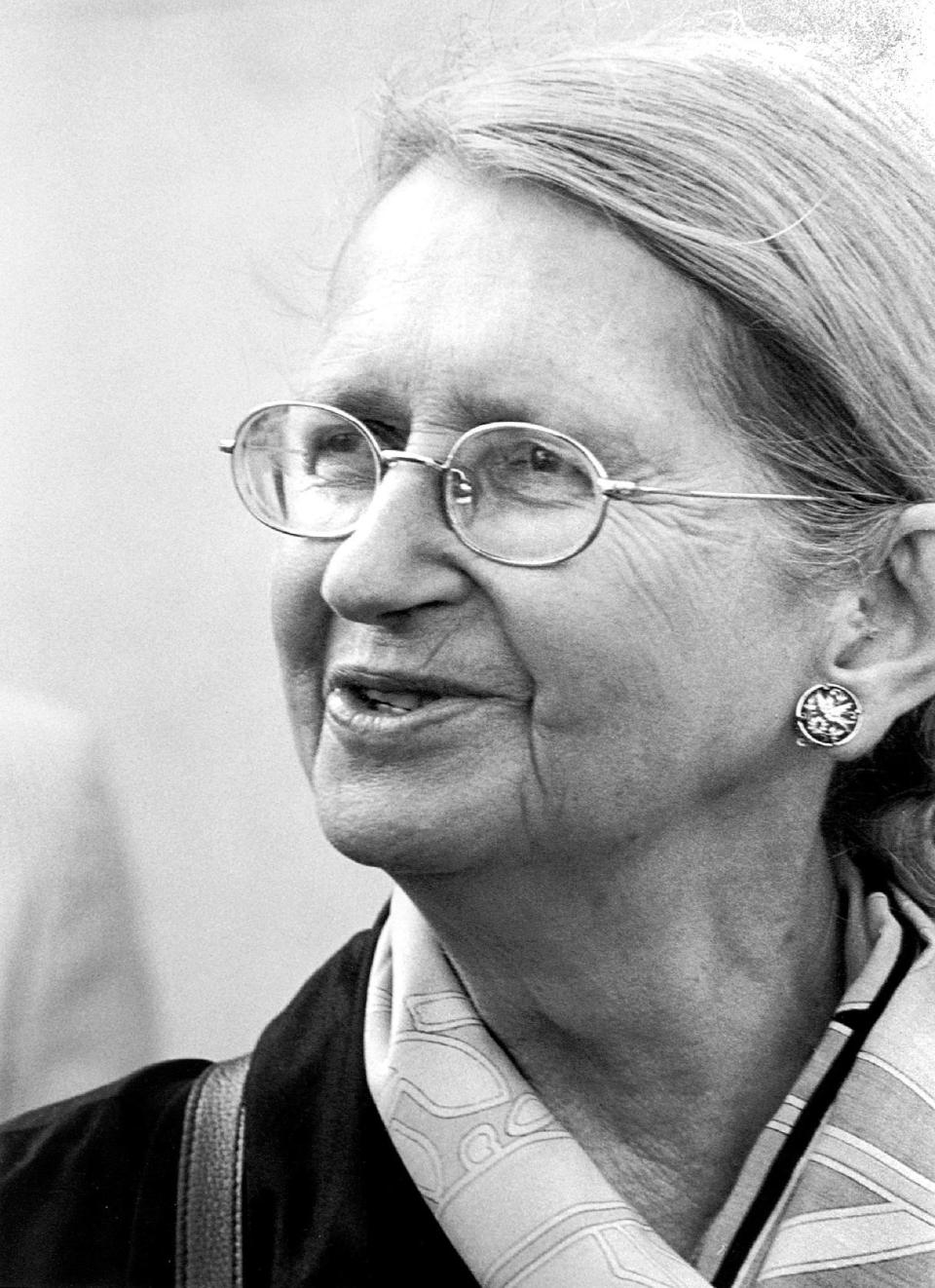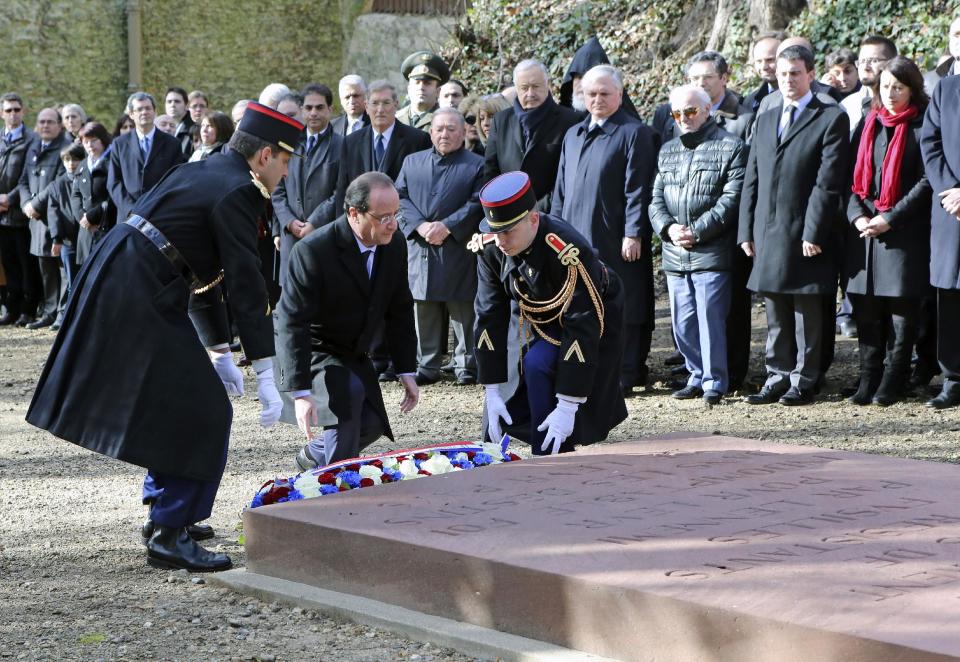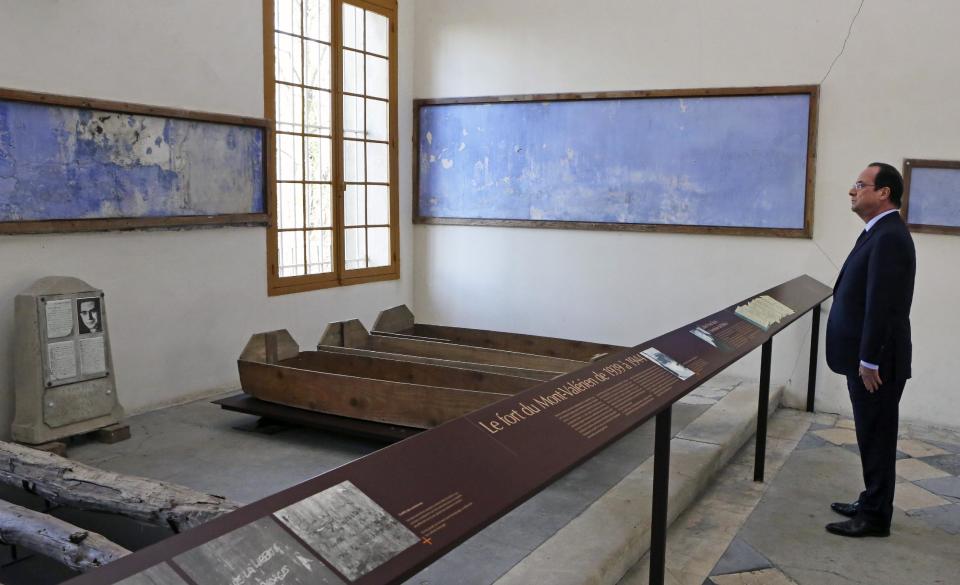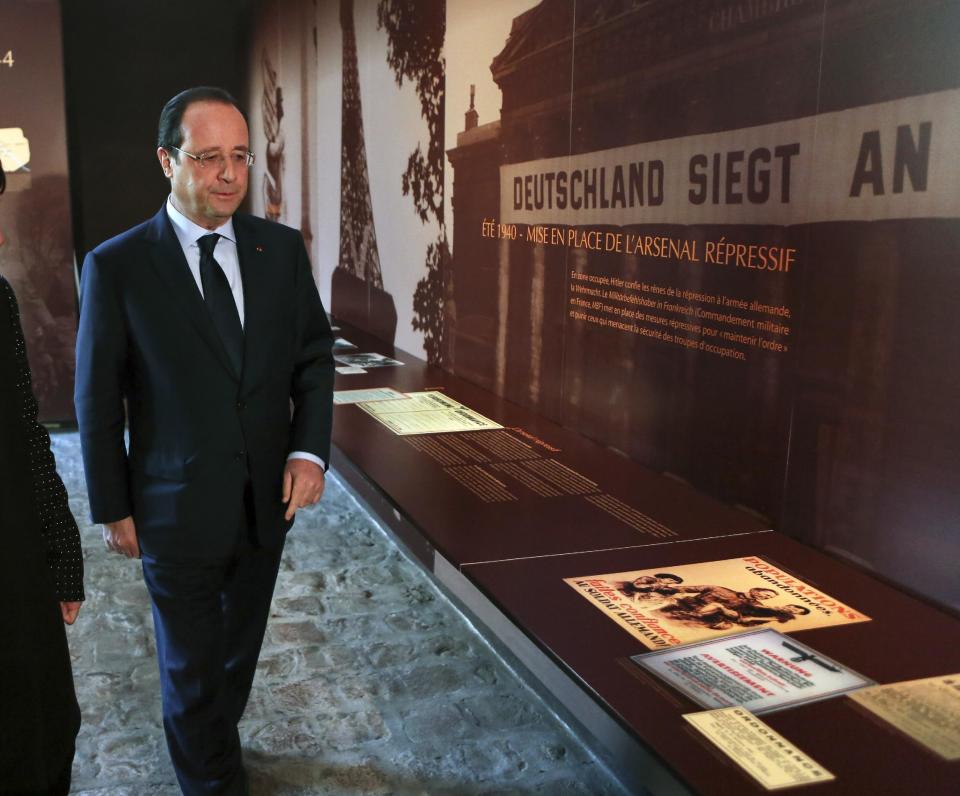Rare honor for 2 women in Paris Pantheon of greats
PARIS (AP) — "To Great Men, A Grateful Country," reads the stately portico of Paris' renowned Pantheon. Now, it could well merit "To Great Women" too.
President Francois Hollande announced Friday that two women who fought with the French Resistance during World War II will be inducted into the Latin Quarter mausoleum that is the final resting place of dozens of French greats, but only one woman among them: Marie Curie.
The selection unveiled at a ceremony honoring those who battled the Nazis and France's collaborationist Vichy regime makes good on the unpopular president's hopes to achieve more gender equality in the country of Liberte, Egalite, Fraternite.
That motto still doesn't ring true for many French women.
The induction in May 2015 of Resistance fighters Germaine Tillion and Genevieve de Gaulle-Anthonioz, a niece of former President Gen. Charles de Gaulle, will bring those honored in the Pantheon to three women and 72 men. Also slated for induction are two men, Pierre Brossolette and Jean Zay.
France has chosen four people "who evoke the spirit of the Resistance," Hollande said at the Mont Valerien memorial west of Paris.
Hollande said the selection of two women was designed to "remember the contribution of all those women, most often anonymous, who were part of those years in the shadows."
Hollande's personal relationships with women have faced intense scrutiny — even ridicule — since a gossip magazine last month reported that he skipped out on his first lady, Valerie Trierweiler, for a secret tryst with actress Julie Gayet. He hasn't denied the allegations, and he and Trierweiler since have separated.
Politically, Hollande has sought to fill the gender gap, particularly in pay. Government statistics suggest working women on average earn 25 percent less than men. Only one woman has led one of France's top 40 companies.
The Socialists have faced resistance to the party's plans to promote equality between boys and girls in school. Critics have called this goal a veiled attempt to introduce radical ideas of gender theory in school, a charge dismissed by the government.
De Gaulle-Anthonioz and Tillion joined the Resistance shortly after Nazi occupation in 1940. Both were active in a Resistance unit based in the Musee de l'Homme, a Paris anthropology museum. Eventually both were captured and shipped to a concentration camp in Ravensbrueck, Germany, where both survived the war, although Tillion's mother, also a Resistance member, died there in captivity.
Tillion, a co-founder of the Museum de l'Homme branch, helped organize prison escapes and underground networks before her 1942 arrest, according to Le Figaro newspaper. Both women wrote memoirs of their experiences inside Ravensbrueck. De Gaulle-Anthonioz died in 2002 aged 81, Tillion in 2008 at the age of 100.
In French, the word for "man" — homme — can be interpreted more broadly to mean "human" or "mankind." But the Pantheon's inscription suggests it was very much intended for men: It had only male honorees for 110 years.
In 1885, Victor Hugo became the first person to be buried in the Pantheon, a former church designed by 18th-century architect Jacques-Germain Soufflot and often compared in style to St. Paul's Cathedral in London or the U.S. Capitol building in Washington.
French thinkers Voltaire, Jean-Jacques Rousseau and Alexandre Dumas are buried there. The ashes of Curie, the Polish-born Nobel Prize-winning chemist who died in 1934, were interred there in 1995. (Sophie Berthelot is there too, but only as the wife of chemist and politician Marcellin Berthelot.)
Philippe Belaval, the head of France's national monuments commission that runs the Pantheon, reported to Hollande that Tillion and De Gaulle-Anthonioz deserved their places in the ranks of France's most honored dead.
"They were able to defend in all circumstances — as men were — the universal values of France," Belaval wrote in his report.

 Yahoo News
Yahoo News 
















